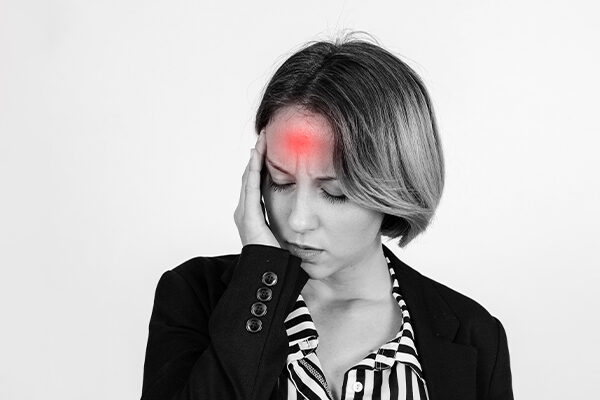Last Updated on August 31, 2022
Introduction:
Obsessive-Compulsive Disorder (OCD) is a long-term mental illness marked by obsessions, compulsions, or both. It involves a pattern of unwanted thoughts and fears (obsessions), which cause one to engage in repetitive behaviors (compulsions). These obsessions and compulsions disrupt daily life and cause significant distress. How to Help Someone with OCD? for that you also need to understand the difference between OCD vs OCPD.
Despite efforts to ignore or eliminate bothersome thoughts or urges, they return. This results in more ritualistic behavior — the OCD vicious cycle. OCD can affect both men and women, as well as children. Some people experience symptoms as early as puberty, but it usually begins in early adulthood.
This blog will discuss OCD vs OCPD in detail. You will learn about the symptoms of OCD and OCPD, as well as how these mental illnesses are diagnosed and treated with the help of an OCD therapist near you. Continue reading to know more about these conditions and how you can help someone with OCD.
Living with OCD or OCPD:
Many people double-check whether they have locked the front door or turned off the stove. Superstitions are also common, such as knocking on wood or wearing your favorite team’s jersey when they play. These habits may make you feel more secure, but they do not necessarily indicate whether you have OCD or OCPD.
These rituals are not a matter of choice for people suffering from these conditions. Instead, they complicate and disrupt daily life. Many people with OCD recognize the thoughts and beliefs that fuel their compulsions as illogical, if not impossible. Nonetheless, they rely on them to:
- Relieve the anguish caused by intrusive obsessive thoughts, and
- Keep persistent fears from becoming true.
While there is no cure for OCD and OCPD, professional treatment and a variety of coping strategies can help you manage your symptoms and reduce, if not eliminate, the impact they have on your daily life.
Reaching out to family, friends, and other loved ones can make it easier to get emotional support, as well as any other type of support you may require — which can lead to overall improved well-being. Getting help by searching for an OCD therapist near you who has treated people with OCD and OCPD can go a long way toward reducing stress and improving your quality of life.
OCD vs OCPD Explained:
Obsessive-Compulsive Disorder (OCD) and Obsessive-Compulsive Personality Disorder (OCPD) are two mental health disorders with similar names, making differentiation difficult. The clinical definitions of these disorders, however, differ.
Obsessions are obsessive, intrusive, repetitive thoughts that occur in people with OCD. Compulsions are feelings of being compelled to repeat behaviors. A person suffering from OCPD may be overly concerned with order and perfection.
Understanding the distinctions between OCD vs OCPD can aid in determining which treatment is required and help someone with OCD or OCPD.
OCD vs OCPD Symptoms:
OCD and OCPD symptoms can coexist. People suffering from either condition may exhibit similar thought patterns and behaviors, such as a focus on order, perfectionism, and organization. There are also some OCD symptoms that do not occur in OCPD.
Symptoms of OCD:
A person with OCD has true obsessions and compulsions that consume their time and cause them distress. OCD is considered an anxiety disorder.
Obsessions with OCD can be intrusive, unwanted, and unrelenting thoughts, and worries. Here are some examples:
- Fear of germs or dirt.
- Fear of causing harm to another person.
- Fear of making a blunder.
- Fear of being humiliated in public.
- Feelings of skepticism or disgust.
- The desire for organization, neatness, symmetry, or perfection.
- Constant reassurance is required.
- Sexual thoughts that society may find offensive.
OCD compulsions are behaviors that a person feels compelled to repeat—usually to avoid anxiety or perceived risk. Here are some examples:
- Arrange items on your dresser in a very specific manner.
- Bathing, cleaning, or repeatedly washing hands.
- Rechecking specific items, such as a lock or the stove.
- Accumulating or hoarding items with no personal or financial value.
- Constantly check to make sure you haven’t harmed anyone.
- While performing other tasks, count repeatedly or say specific words or prayers.
Refusing to shake hands or touch objects that other people frequently touch, such as door knobs.
Symptoms of OCPD:
OCPD is a type of personality disorder. It has a different appearance and feel than OCD. People suffering from OCPD are obsessed with achieving perfection for themselves and others. They work tirelessly to keep to the rules and order in their environment.
People suffering from OCPD frequently:
- Are high-achieving, conscientious, and perform well at work.
- Have difficulty understanding the perspectives of others.
- Have trouble hearing constructive criticism.
- Look for patterns of control and order. They strive to attain perfectionism to the point where it interferes with their task completion.
- Have a tendency to be unable to discard old or worthless items.
OCD is characterized by fear, anxiety, and attempts to control uncertainty. OCD obsessions and compulsions can ebb and flow depending on a person’s current level of anxiety or fear. OCPD is a personality disorder. The behaviors of a person with OCPD do not fluctuate; rather, they occur consistently over time.
People who have OCD are usually aware that they have a mental health problem. People with OCPD may be unaware that they have a personality disorder. Help someone with OCD and OCPD by understanding the differences between the conditions and simply educating them.
OCD vs OCPD Causes:
The causes of both OCD and OCPD are unknown, but there are several factors that may increase a person’s risk of developing either condition.
Risk Factors for OCD:
Brain:
OCD may be caused by a breakdown in communication between parts of the brain. Some research has suggested that neurotransmitter issues, such as serotonin, may play a role in OCD.
Genetics:
OCD has been linked to a genetic component, according to research. People who have a family history of OCD are more likely to develop the condition.
Environment and Stress:
A brain injury, infection, trauma, or stressful events can all increase a person’s risk of developing OCD. Stress can both cause and exacerbate OCD symptoms.
Infections:
The reaction to the bacteria that causes strep throat is known as Pediatric Autoimmune Neuropsychiatric Disorders associated with Streptococcal Infections (PANDAS). It usually occurs during childhood. Inflammation of the brain caused by strep infection can lead to children developing OCD.
Risk Factors for OCPD:
Genetics:
It appears that OCPD has a genetic component. According to research, people with a family history of OCPD are more likely to develop the condition.
Early attachment:
OCPD may begin in childhood if attachment bonds are disrupted. For example, if a child is unable to form a bond with a primary caregiver, it can have an impact on their subsequent relationships. If a child tries to cope without healthy attachment, he or she may develop a personality disorder such as OCPD.
Diagnosis of OCD vs OCPD:
OCD Diagnosis:
Doctor-based criteria outlined in the 5th Edition of the Diagnostic and Statistical Manual of Mental Disorders (DSM-V) will determine whether the individual is diagnosed with OCD. Some of these criteria that an OCD therapist near you might look into include:
- There are obsessions or compulsions (or both).
- Obsessions and/or compulsions occur because the person is attempting to avoid anxiety, distress, or a potentially dangerous situation.
- Obsessions and/or compulsions are excessive, and the thoughts and/or behaviors consume a significant amount of a person’s time (more than one hour per day) or cause distress.
- Obsessions and/or compulsions make it difficult for the individual to function socially or at work.
OCPD Diagnosis:
A clinician or OCD therapist near you will see if you have the following characteristics to diagnose OCPD:
- A consistent pattern of order and control may jeopardize flexibility, efficiency, and openness.
- Perfectionism impedes a person’s ability to complete a task, especially when their standards are not met.
- An extreme preoccupation with details, rules, order, organization, and schedules.
- Excessive devotion to work that extends beyond their financial need, even to the point of foregoing personal relationships in favor of work.
- Significant challenges with regard to their ideas and plans for task completion.
When Should You See a Doctor or an OCD Therapist Near You?
There is a distinction to be made between being a perfectionism (someone who demands flawless results or performance, for example), having OCPD, and having OCD. OCD and OCPD thoughts aren’t just excessive worries about real-life problems or a preference for keeping things clean or arranged in a particular way.
Consult your doctor or an OCD therapist near you if your obsessions, compulsions, or other symptoms are interfering with your quality of life.
Treatment – OCD vs OCPD:
OCD vs OCPD: Medication, talk therapy, or a combination of the two can help someone with OCD or OCPD and help with their treatment.
OCD Treatment:
Cognitive-Behavioral Therapy (CBT):
This is a type of psychotherapy, cognitive-behavioral therapy (CBT). You will meet with an OCD therapist near you who will assist you in examining and comprehending your thoughts and emotions. CBT can help you break bad habits over time, possibly replacing them with healthier coping mechanisms.
Medications:
Serotonin Reuptake Inhibitors (SRIs), selective SRIs (SSRIs), and tricyclic antidepressants may be beneficial. They raise serotonin levels. Clomipramine, fluoxetine, fluvoxamine, paroxetine, and sertraline are some examples.
Exposure and Response Prevention (EX/RP) Therapy:
This involves doing the thing that causes anxiety. The healthcare provider then prevents you from responding involuntarily. For example, the provider may instruct you to touch filthy objects but then instruct you not to wash your hands.
OCPD Treatment:
Treatment for OCPD has not been thoroughly researched. There have only been a few small studies. There are no specific medications for OCPD, but some people can benefit from the same medications that help treat OCD (SSRIs).
CBT may also help some people with OCPD, according to some studies, because it teaches them to examine their thoughts and actions.
How to Help Someone with OCD?
People suffering from OCD are often hesitant to seek help. They are often either ashamed or embarrassed. OCD is a medical condition like any other, so there’s nothing to be ashamed of. OCD does not imply that they are “crazy,” and it is not their fault that they have it.
There are two main pathways for help and assistance:
- Directly refer to a psychological therapy service.
- Consult a doctor or an OCD therapist near you about the symptoms. If necessary, they will refer them to a local psychological therapy service.
If you suspect a friend or a family member is experiencing symptoms similar to OCD, look for Obsessive Compulsive Disorder Clinical Trials in Michigan to help someone with OCD and help them find the best treatment for their mental health issues. Without proper treatment and support, it is unlikely that OCD will improve.
Outlook:
OCD symptoms may worsen over time if not treated, affecting your personal relationships and quality of life. People with “poor insight,” about belief in OCD obsessions and compulsions, may have poorer treatment outcomes. Because of a lack of understanding about OCD, education, awareness, and treatment may be especially important.
Treatment isn’t always simple. Anxiety and distress are frequently brought up during therapy. But stick to your treatment plan, even if it’s difficult at first. Treatment can help improve symptoms you may be experiencing.
Talk to your doctor or an OCD therapist near you if you are having difficulty with daily responsibilities and personal relationships as a result of OCD symptoms. They can assist you in locating the appropriate treatment to assist you in learning to cope with OCD.







